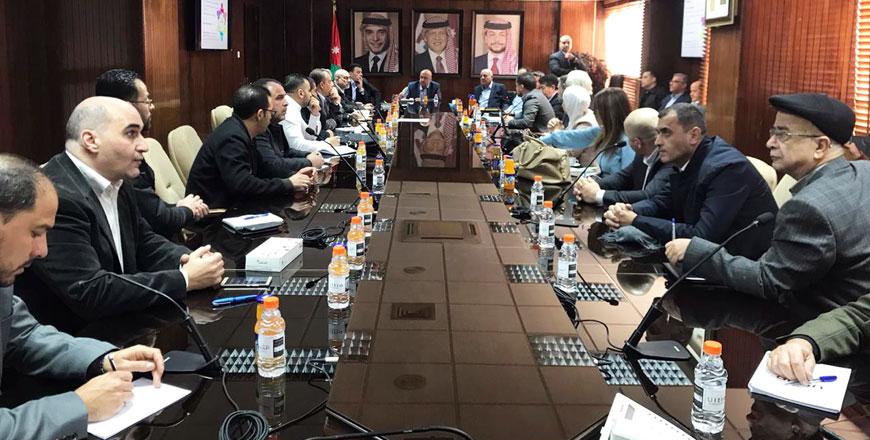You are here
Water, energy security tied to sustainable development — Abul Saud
By JT - Nov 04,2019 - Last updated at Nov 04,2019
AMMAN —The water sector consumes some 14 per cent of the total energy used in the Kingdom, Water Minister Raed Abul Saud said on Monday.
He added that ensuring water and energy security is a “basic requirement” for achieving sustainable development.
Deputising for Prime Minister Omar Razzaz, Abul Saud attended the opening of a water and energy conference held at the Dead Sea, the Jordan News Agency, Petra, reported.
Abul Saud, during the ceremony, said that the Kingdom has “managed to attract successful investments” in the field of renewable energy, calling for an integrated system that enhances water and energy security, as Jordan is one of the water-poorest countries in the world.
The water sector consumes about 15 per cent of the electricity the country produces, Energy Minister Hala Zawati said at the conference, noting that electricity storage in dams could be one of the solutions, while highlighting the importance of the “changing patterns” of water consumption.
In relation to the water sector’s strategies to reduce energy costs, Zawati mentioned clean energy projects designated to serve the water sector, including the Maan-based wind energy project and the Quairah-based solar project, with a capacity of 100 megawatts each.
Ali Subah, general secretary of the Ministry of Water and Irrigation, said that Jordan’s water per capita is less than 100 cubic metres, below the international water poverty line of 500 cubic metres per year.
Subah added that the growing demand for water is tied to regional instability, as well as groundwater depletion, in addition to high energy costs in the water sector.
The water sector’s energy bill in 2018 reached JD220 million, constituting 60 per cent of operating and maintenance expenditure, he said, adding that the percentage of water loss, due the need for pipe replacements, is estimated at 45 per cent.
The two-day event was organised by the University of Jordan (UJ) with the support of the German Agency for International Cooperation to address emerging challenges facing the sectors of water and energy, which should be handled with a collaborative framework, UJ President Abdelkareem Qudah said.
Related Articles
AMMAN — In light of the cold front forecast for Friday, Water Minister Raed Abul Saud checked on supervisors of water and sewage stations th
AMMAN — The government has no plans to raise the prices of water in 2020 or 2021 despite the increase in costs, Water Minister Raed Abul Sau
AMMAN — Minister of Water and Irrigation Raed Abul Saud on Monday announced commencement of the Supervisory Control and Data Acquisition (SC


















